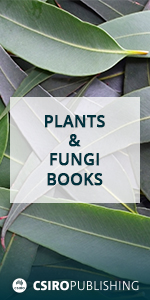Rosa damascena Mill. was treated with two elicitors (magnesium oxide nanoparticles and methyl jasmonate) at several concentrations, alone or in combination, via foliar spray. Effects of the treatments on the concentrations of phenolic compounds, flavonoids and anthocyanins, antioxidant Cactivity and changes in volatile organic compound concentrations at flowering stages were investigated. Our result demonstrated that the elicitors stimulated production of monoterpenoid and aromatic alcohols that are responsible for the perfume of petals. The elicitors also enhanced concentrations of total phenolic compounds and flavonoids in flowers.

Functional Plant Biology
Volume 52 Number 10 2025
An integrative analysis of chickpea cultivars under Fusarium wilt stress demonstrated cultivars’ specific agronomic, physiological, and gene expression responses. Increased antioxidant enzyme activity and upregulation of defense-related genes, such as WRKY55 and MADS-box TF23-like, were correlated with resistance. These results are worth using in breeding Fusarium-resistant chickpea cultivars.
This article belongs to the collection: Soil Microbiome and Abiotic Stress Tolerance in Plants.
FP25100 Abstract | FP25100 Full Text | FP25100PDF (3.5 MB) | FP25100Supplementary Material (174 KB) Open Access Article
We explore how copper treatment influences the redox state and secondary metabolism in Scutellaria baicalensis Georgi roots. Copper exposure elevated the glutathioine (GSH): oxidized glutathione ratio, and altered the expression of genes related to GSH recycling and the salicylic acid pathway. Distinct accumulation patterns of baicalin and baicalein suggest a redox-mediated adjustment of secondary metabolism in response to copper treatment.





